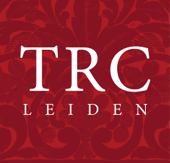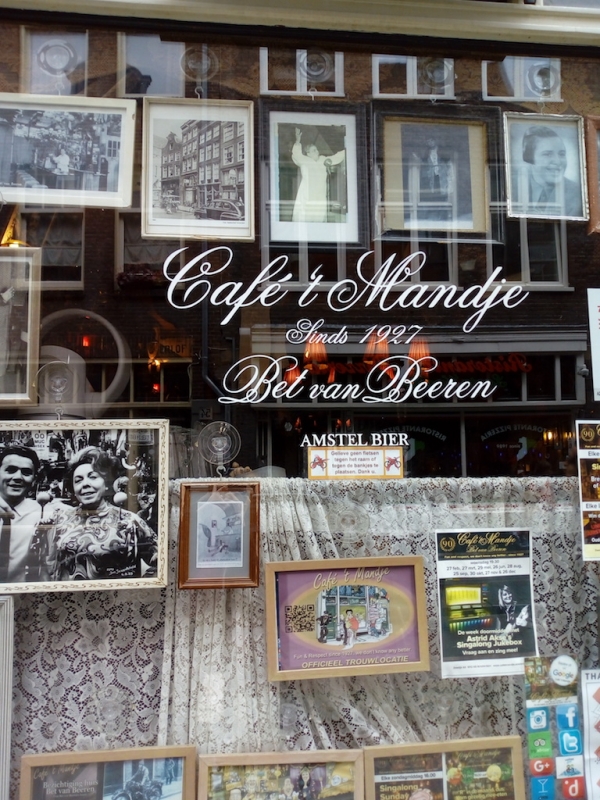The city of Amsterdam (NL) still honours an open lesbian woman who frequently wore trousers, ties, leather jackets and sailor suits. Bet van Beeren (1902 – 1967) was a well-loved owner of the gay bar ‘t Mandje in Amsterdam’s Zeedijk area. The bar was a popular gathering place for the neighbourhood, sailors, artists and LGBTQ+ people.
Though kissing was forbidden, once a year, on Koninginnedag (the Dutch national holiday celebrating the monarch’s birthday), the bar’s custom-made pool table was dismantled and same-sex dancing was allowed in the bar. Bet had a habit of cutting the ties off of male customers’ necks and hanging them from the bar’s ceiling as mementoes.
Bet’s influence lingers on in the Dutch language. In order to warn LGBTQ+ customers that the vice police were on the premises, Bet would switch on a porcelain lamp that stood on the bar. This was a signal to stop all same-sex displays of affection. The lamp was in the shape of an owl (uil in Dutch), which gave rise to the Dutch slang word for a heterosexual.
 Bet van Beeren (1902-1967) in motorcycle clothes.
Bet van Beeren (1902-1967) in motorcycle clothes.
After Bet’s death, her younger sister Greet kept the bar open until 1982. In 1998 the Amsterdam Museum built a replica display of the iconic bar as part of its permanent collection. In 2017 the city of Amsterdam named a bridge near the bar after Bet. In 2008 Café ‘t Mandje was lovingly restored and reopened by Bet and Greet’s niece, Diana van Laar.
In an email (23 March 2019) to the TRC, van Laar wrote: “From a textile research point of view, it may be interesting to mention that I took everything down for the renovation, washed them all and put everything back in its proper place, everything having been mapped by 300 pictures taken of the ceiling alone. And an interesting detail: silk ties survived the washing, whereas for example Trevira and other artificial fabrics crumbled at a mere touch.” (Information from the Café ‘t Mandje website).

